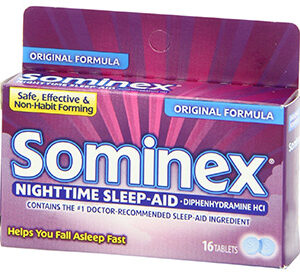Provigil Overview
Provigil, with the active ingredient modafinil, is a wakefulness-promoting agent prescribed to alleviate excessive sleepiness in several medical conditions. It is known for its ability to boost alertness in individuals with sleep disorders such as narcolepsy, shift work disorder, and obstructive sleep apnea (OSA). Beyond its primary indications, Provigil has gained attention for its off-label use as a cognitive enhancer.
Usage Indications
Provigil is indicated for managing symptoms of excessive sleepiness in adults with narcolepsy, obstructive sleep apnea (OSA), and shift work sleep disorder (SWSD). In patients with OSA, Provigil is an adjunct to standard treatment modalities for the underlying obstruction, if applicable. It is not a substitute for such treatments and its use for sleepiness does not negate the need for regular CPAP use.
Administration and Dosage
The suggested daily dose for Provigil is typically 200 mg, taken orally once a day. For patients with narcolepsy and OSA, the recommended dose can be taken as a single morning dose. Individuals dealing with SWSD may benefit from taking the dose approximately one hour before the commencement of their work shift. Physicians may adjust the dosage based on the efficacy and tolerability of the drug in each patient. In some cases, doses of up to 400 mg/day, taken as a single dose, have been well-tolerated but provide no additional benefit beyond the 200 mg/day dose.
Action Mechanism
Provigil promotes wakefulness through a mechanism not entirely understood. However, it is believed to work differently than sympathomimetic amines. Modafinil has wake-promoting actions similar to sympathomimetic agents, including amphetamine and methylphenidate, though its pharmacologic profile is not associated with the euphoria and addiction that can accompany those substances.
Precautions and Contraindications
Prior to commencing Provigil, disclose any pre-existing heart issues, hypertension, liver or kidney impairments, a history of mental health disorders, or a past marked by substance abuse to a healthcare provider. The medication is contraindicated in individuals with a known hypersensitivity to modafinil or its constituents. A thorough evaluation for the possibility of cardiovascular disease is recommended before prescribing Provigil to patients with identified risk factors.
Drug Interactions
Provigil can interact with various medications, affecting either its effectiveness or that of the other drugs. It has the propensity to elevate the enzymatic activity, specifically of cytochrome P450, which may accelerate the metabolism of certain other pharmaceuticals leading to reduced efficacy. Conversely, modafinil levels might be affected by drugs like omeprazole or diazepam. Close monitoring and possible dose adjustments are essential when these drugs are used concurrently.
Adverse Reactions
While taking Provigil, some individuals may experience side effects such as headache, nausea, nervousness, dizziness, or difficulty sleeping. Serious adverse reactions, though less common, may arise, including severe rashes, hypersensitivity reactions, psychiatric symptoms, and signs suggestive of multi-organ hypersensitivity. Immediate medical attention is required for any severe or persistent side effects.
Toxicity and Emergency Actions
In the event of an overdose, patients may exhibit symptoms like insomnia, restlessness, confusion, agitation, or hallucinations. There have been no reports of life-threatening effects with Provigil overdose, including ingestion of doses up to 4500 mg. Supportive measures, coupled with immediate medical care, including gastric lavage or the administration of activated charcoal, are recommended in overdose situations.
Special Patient Considerations
Particular groups like pregnant women, the elderly, children, and those with hepatic or renal impairment warrant special consideration when it comes to Provigil prescription. The safety and effectiveness of Provigil in pediatric patients have not been established. Reduced dosages should be considered for the elderly and those with impaired liver or kidney function, while the risks and benefits must be weighed carefully for pregnant or breastfeeding women.
Storage Instructions
Provigil should be stored away from children’s reach, at room temperature, and shielded from moisture and sunlight. The medication should not be stored in damp places such as bathrooms to prevent degradation of the active ingredient.
Pharmacology Insights
Provigil is not a direct- or indirect-acting dopamine receptor agonist. However, in vitro studies suggest that modafinil binds to the dopamine transporter and inhibits dopamine reuptake. This activity could underpin its efficacy in boosting vigilance. The metabolic rate is rapid and primarily hepatic, with predominant excretion in the urine.
Postmarketing Reports
Postmarketing surveillance has brought attention to additional side effects not identified in clinical trials. These reactions include but are not limited to severe skin and hypersensitivity reactions, angioedema, anaphylactic and anaphylactoid reactions, and psychiatric symptoms. Continual reporting and review of such experiences are essential for the ongoing evaluation of drug safety.
The details provided in this guide underline the importance of proper drug administration and monitoring for therapeutic effectiveness and side effects. It is crucial to adhere strictly to the guidelines and engage healthcare providers for any concerns regarding Provigil therapy.



Reviews
There are no reviews yet.